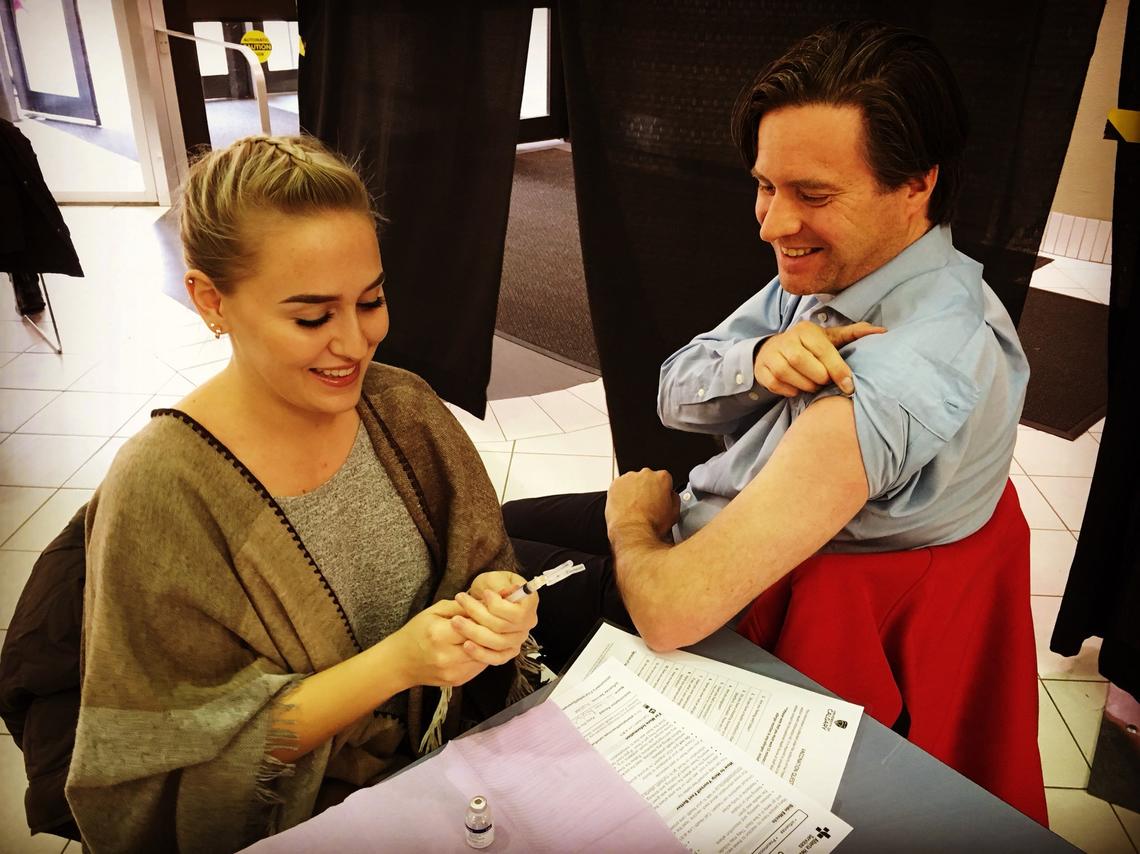June 6, 2018
UCalgary first non-oil-and-gas organization to win occupational health award

Staff wellness programs reach far and wide across campus — you or someone you work with has no doubt benefited from the work of the University of Calgary’s one-and-only occupational health nurse in staff wellness, Brendan Webster.
Webster and his team at the university were recently recognized for their contribution to the occupational health nurse profession — the Alberta Occupational Health Nurses Association (AOHNA) honoured UCalgary with the AOHNA Employer award.
“Syncrude Canada won the award last year, which isn’t a surprise because these larger oil and gas companies have a strong reputation for robust health and safety programs,” Webster says. “But to get a post-secondary like UCalgary in the same category as some of these other big players speaks to what a great job the university is doing.”
Programs and impact
As the university’s occupational health nurse, Webster oversees three major facets of staff wellness and occupational safety:
- The Immunization Program helps employees track their immunization records, ensure their occupationally required immunizations are up to date and access on-campus flu vaccinations every fall. On-campus vaccinations programs like UCalgary’s continuously prove that removing barriers, like the need to take time from work to travel to a vaccination site, can increase the number of vaccinated people on campus — this translates to healthier employees and fewer sick days. Last year, this program vaccinated close to 5,000 students, staff and faculty.
- The Audiometric Program looks at early detection and prevention of occupational hearing loss in areas where there is potential for harmful or loud noises. Employees at the heating and cooling plant on campus participate in the program, as well as maintenance crews who regularly work with loud machinery.
- The Respiratory Protection Program is focused on the health impacts of breathing hazards on employees like maintenance staff or even researchers — faculty and staff in Nursing, Vet Med and Chemistry programs commonly use this program.

Bill Rosehart, dean of engineering, took advantage of the on-campus flu immunization clinic.
Sarah McGinnis, Schulich School of Engineering
According to Darren Ferleyko, director of staff wellness, offering these programs on campus allows the occupational health nurse to meet the specific needs of each department or unit within the university.
“On-site programs provide improved customer service and test results that we can trust,” Ferleyko says. “At the end of the day, quality information protects our employees.”
Not only does this program help faculty and staff remain healthy and well, Webster also uses his position as an opportunity to educate nursing students at the university. Five UCalgary nursing students have already participated in the Occupational Health Nurse practicum.
Why it matters
Webster says the impact of occupational health nurses can be seen at every corner UCalgary's campuses.
“Directly, we help mitigate institutional risk, but indirectly, a healthy workplace improves productivity and well-being — it’s a win-win,” he says.
Ferleyko says while many faculty and staff won’t ever meet Webster face to face, most will benefit from his role as the university’s occupational health nurse.
“UCalgary is committed to the health, safety and well-being of our community, and it’s really meaningful to be recognized for that,” he says.
